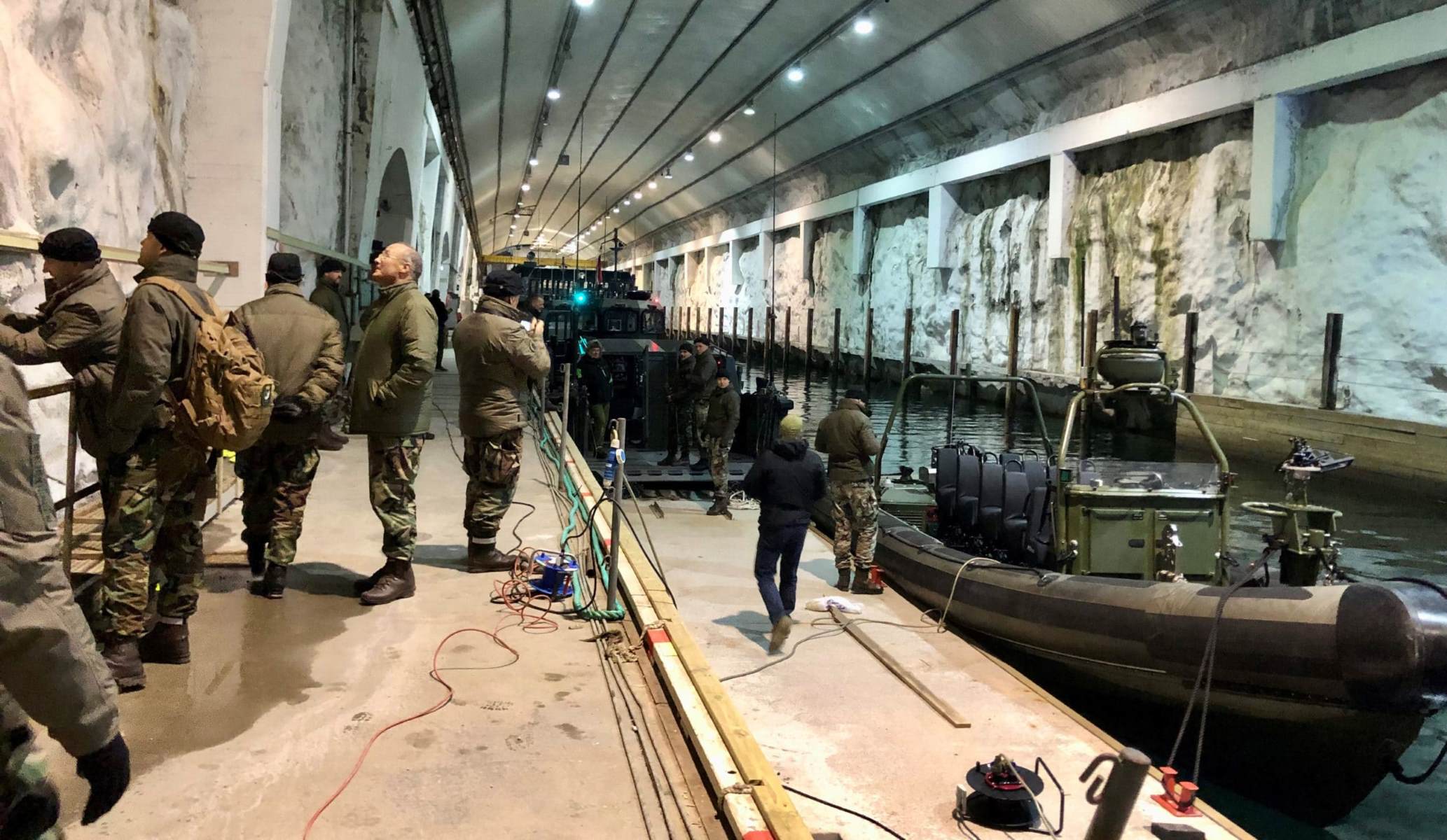Secrets Of Cold War Submarine Bases

Have you ever wondered about the hidden world beneath the ocean's surface? During the Cold War, submarine bases played a crucial role in military strategy. These secretive locations housed some of the most advanced underwater vessels of the time. Built to withstand attacks and remain undetected, they were marvels of engineering. Imagine vast networks of tunnels and chambers, all designed to keep submarines ready for action. Today, many of these bases remain shrouded in mystery, with only a few open to the public. Let's dive into the fascinating history and secrets of these Cold War submarine bases.
Hidden Depths of Cold War Submarine Bases
During the Cold War, submarine bases were shrouded in secrecy. These underwater fortresses played crucial roles in naval strategies. Let's dive into some of the most intriguing Cold War submarine bases around the world.
Secret Soviet Submarine Bases
The Soviet Union built numerous secret bases to house their formidable submarine fleet. These bases were often hidden in remote locations, making them difficult to detect.
Balaklava, Ukraine
Balaklava's submarine base, carved into a mountain, could withstand a nuclear strike. This underground labyrinth housed submarines and provided maintenance facilities.Pavlovsk, Russia
Located near Vladivostok, Pavlovsk was a major hub for Soviet submarines in the Pacific. Its strategic position allowed quick deployment into the Pacific Ocean.Olenya Bay, Russia
Olenya Bay, in the Arctic Circle, served as a key base for the Soviet Northern Fleet. The harsh climate and remote location made it an ideal hiding spot.
American Submarine Strongholds
The United States also developed advanced submarine bases to counter Soviet threats. These bases were equipped with cutting-edge technology and security measures.
Naval Submarine Base Kings Bay, Georgia
Kings Bay is home to the Atlantic Fleet's ballistic missile submarines. Its state-of-the-art facilities ensure the readiness of the U.S. Navy's underwater arsenal.Naval Submarine Base Bangor, Washington
Bangor, located on the Pacific coast, houses the Pacific Fleet's ballistic missile submarines. Its strategic location allows rapid access to the Pacific Ocean.Groton, Connecticut
Known as the "Submarine Capital of the World," Groton is home to the U.S. Navy's primary submarine shipyard. It has been a key site for submarine construction and maintenance.
British and French Submarine Bases
The United Kingdom and France also maintained significant submarine bases during the Cold War. These bases were essential for their nuclear deterrent capabilities.
Faslane, Scotland
Faslane, on the west coast of Scotland, is the primary base for the UK's nuclear submarines. Its deep waters and remote location make it an ideal submarine haven.Île Longue, France
Île Longue, located in Brittany, is the main base for France's ballistic missile submarines. This heavily fortified base ensures the security of France's nuclear deterrent.
Lesser-Known Submarine Bases
Some Cold War submarine bases remain lesser-known but played vital roles in naval operations. These bases often had unique features that set them apart.
Paldiski, Estonia
Paldiski, a former Soviet base, was used for training nuclear submarine crews. Its facilities included a nuclear reactor for realistic training scenarios.Gremikha, Russia
Gremikha, another Arctic base, housed both conventional and nuclear submarines. Its remote location provided a strategic advantage for the Soviet Navy.Severodvinsk, Russia
Severodvinsk, on the White Sea, is a major shipbuilding center for Russian submarines. It has been a key site for constructing and maintaining the Soviet and Russian submarine fleets.Holy Loch, Scotland
Holy Loch served as a base for U.S. Navy submarines during the Cold War. Its proximity to the Atlantic made it a strategic location for submarine operations.
Hidden Depths of History
Cold War submarine bases hold fascinating stories. These secretive locations played crucial roles in global politics. Exploring them offers a glimpse into the past, revealing the tension and innovation of that era. From the Arctic Circle to the Mediterranean, these bases were strategically placed to monitor and counter threats.
Visiting these sites today, you can see remnants of advanced technology and hear tales of daring missions. They remind us of a time when the world was on edge, and every move was calculated. Whether you're a history buff or just curious, these bases provide a unique look into a pivotal period.
Next time you plan a trip, consider adding a Cold War submarine base to your itinerary. You'll walk away with a deeper understanding of history and a newfound appreciation for the complexities of global security.

